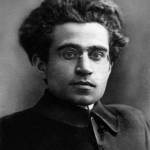Christians have been discussing, analyzing, and trying to account for the evident decline in affiliations with Christianity. Well, other religions are also declining, and they are worried too, though they are worried about different factors.
I randomly chanced upon a Buddhist site that frets about how many Buddhists and potential Buddhists are flocking instead to Stoicism.
Doug Bates, on his Substack Ataraxia or Bust! has written a piece entitled Interest in Buddhism Declines While Stoicism Soars. “In a zeitgeist where the concerns are about psychological well-being during a period of societal and political turbulence,” he writes, “no wonder people are turning to Stoicism and away from Buddhism.”
The Buddha, he says, had no interest in politics. Stoicism, though–the philosophy of Roman statesmen and emperors–does:
While Stoicism encourages political engagement, contemporary Stoicism has a big tent. It accommodates Stoic authors such as Trump-loathing Ryan Holiday and the Trump-supporting West Virginia legislator Pat McGeehan. . . . Other popular Stoic authors have backgrounds of full engagement with worldly concerns. There are businessmen such as Ryan Holiday, Chuck Chakrapani, and Stephen Hanselman; and entrepreneurs such as Tim Ferris and Phil Van Treuren. In contrast, Buddhist authors are often runcinants, or engaged in vocations at farther remove from worldly concerns.
People today are also interested in psychology:
The Stoics speak to the psychological concerns of our era, perhaps in a better way than Buddhism does. It’s well-known that the practices of the ancient Stoics inspired Cognitive Behavioral Therapy (CBT). One of the most popular contemporary Stoic authors, Donald Robinson, is a Cognitive Behavioral Therapist.
While much has been made of Buddhist psychological approaches, much of it has been watered down and commercialized to the point of being almost unrecognizable – aka “McMindfulness.”
Buddhism is also hard. It requires discipline, difficult meditational practices, and the commitment required by an actual religion. Stoicism is more easily grasped and requires less of a commitment.
Two of the best-selling Stoic authors, Massimo Pigliucci and William Irvine, said they considered Buddhism and chose to adopt Stoicism instead. Stoicism is turning out to be a better fit for the self-improvement and societal improvement issues of the present moment. No wonder Stoicism is having a cultural moment, and in doing so, it seems to be taking a share of mind that Buddhism once attracted.
I can see the similarities between the Buddhist religion and this ancient Hellenistic-Roman philosophy. Neither requires a belief in an actual god, as such. Their concern is to attain a particular frame of mind.
Buddhism seeks to extinguish desire. Stoicism seeks to be free of the passions.
Buddhist meditation promotes “mindfulness,” defined in Wikipedia as “sustaining meta-attentive awareness towards the contents of one’s own mind in the present moment.” That concept, in a secularized form, has been picked up by psychology and pop-psychology and has become a staple of various therapies and meditation programs in schools and businesses. Bates is scorning such things as “McMindfulness.”
Stoicism promotes Ataraxia, defined as a state of serene calmness. Bates’s Substack of that name ties into his interest in the connections between Buddhism and Greek philosophy.
Stoicism is also focused on reason, on living by reason instead of by our emotions. To its credit, though, Stoicism also promotes a life of virtue. It also did a lot with the Logos, the universal reason that underlies nature and all existence, a term the term also used by other Greek thinkers. St. John took the concept and totally transformed it to describe the Son of God (John 1: 1-18).
Do you think Stoicism will also be a serious competitor to Christianity? Bates lists a plethora of books and authors that are apparently selling well. In Tom Wolfe’s novel A Man in Full, the main characters find a sort of redemption when they turn to Stoicism.
My sense is that our culture has little interest in virtue, self-control, reason, or suppression of the passions. Instead, it values the opposite of Stoicism, treasuring immorality, self-expression, irrationalism, subjectivity, and indulgence in the passions.
Then again, casualties of one way of thinking often resort to the opposite extreme. Furthermore, Stoicism is itself an extreme, denying our full humanity in favor of a truncated rationalism.
I think of C. S. Lewis’s point about “thin” and “thick” religions. The “thin” are “philosophical, ethical, and universalizing.” Like Stoicism. The “thick” religions are full of mysteries, ecstasies, and sacred places. Like Buddhism.
Christianity has both, at the same time. It has both a wide-ranging theology and the mysteries of the Sacraments, proclaiming a universal God who was incarnate in Christ, the Logos made flesh.
Photo: Bust of Zeno of Citium [considered the founder of Stoicism] by Paolo Monti – Available in the BEIC digital library and uploaded in partnership with BEIC Foundation.The image comes from the Fondo Paolo Monti, owned by BEIC and located in the Civico Archivio Fotografico of Milan., CC BY-SA 4.0, https://commons.wikimedia.org/w/index.php?curid=48067347














